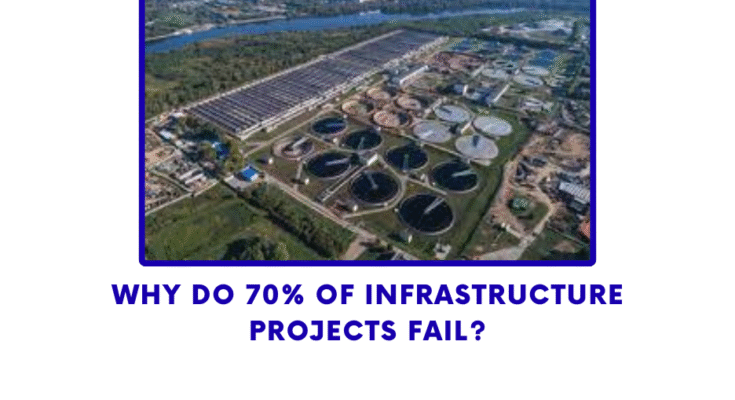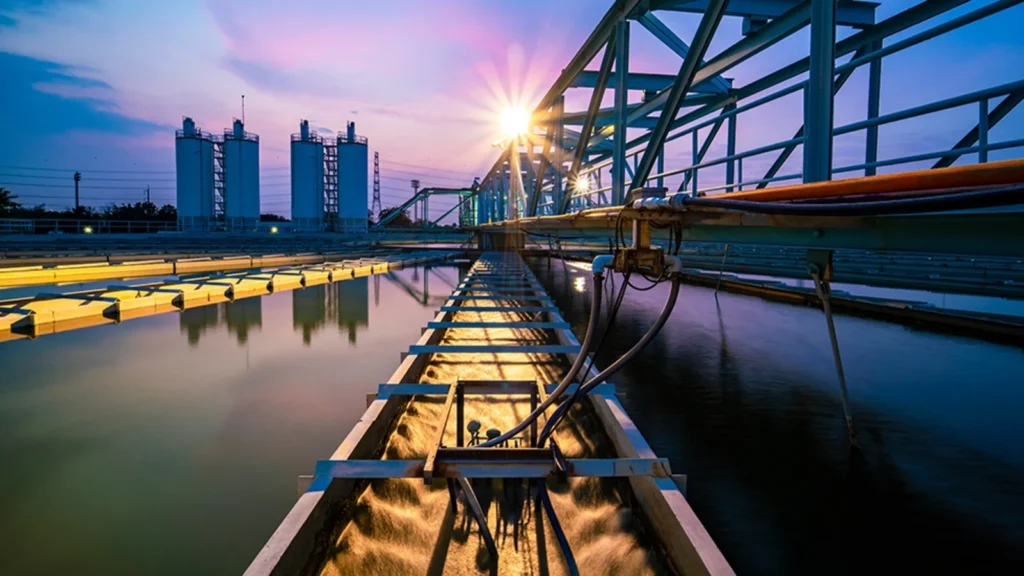Why 70% of Infrastructure Projects Fail – And How Strong Project Management Guarantees Success
Infrastructure projects are the lifeblood of modern society; from water supply systems to environmental engineering projects and urban infrastructure, they shape how societies grow and flourish. However, statistics show that nearly 70% of infrastructure projects fail. This does not necessarily mean that they do not have enough funding or are poorly engineered, the main cause of failure is often weak project management.
Today, governments, organizations, and companies are being squeezed by demands for on-time delivery, on-budget delivery, and sustainable impacts, which has made project management in infrastructure one of the most Googled topics. Professionals and decision-makers want to understand how to address the issues we face and ensure successful project delivery.
In this article, I will explain the 5 key reasons why infrastructure projects fail, and identify three well-documented project management strategies to convert failure into long-term success.
Why Do Infrastructure Projects Fail?
When we hear the statistic that 70% of projects fail, it begs the question; why? Here are the most common causes of project failure:
– Unclear project scope and objectives: If the scope is not clearly defined, teams will inevitably lose focus, budgets will spiral, and timelines will stretch out.
– Poor risk management: Any incurred risk through environmental, financial or political mechanisms can delay, or even halt, projects altogether.
– Communication issues: If stakeholders are uninformed or uninvolved in the project process, ideas seem more difficult to pitch and projects lose traction and support.
– Lack of sustainability planning: Infrastructure that lacks environmental and social considerations often falls apart in the future.
These issues are not solely in developing nations, however; all economies lose billions of dollars on mismanaged projects each year.
How Strong Project Management Can Turn the Tide
I have 12+ years of experience in Water Resource and Environmental Engineering managing large – and small-scale infrastructure projects. From my experience, I wanted to share 3 key strategies that can yield successful outcomes:
1️⃣ Clear Scope & Goals
Every successful project starts with a vision. Project managers need to clearly articulate measurable goals and hold all stakeholders accountable to that vision from the start. This helps alleviate confusion or miscommunication and establishes a baseline for success at the outset of the project.
2️⃣ Proactive Risk Management
Inevitably, any infrastructure project will encounter challenges, such as climate change impacts, environmental, political stability, or financial risks. If you identify risks early and develop short- and long-term contingency plans, project managers can keep their project on track with less drama (and financial surprises).
3️⃣ Open Dialogue and Engagement With Stakeholders
Communication on projects can often be phenomenal among the chief players. However, when governments, organizations, and communities buy in and engage, they tend to support the project even when challenges arise because they have been invested emotionally and feel a commitment to keep it going. Ultimately, they tend to be less resistant.
The Advantages of Sustainable Project Management in Infrastructure
The benefits of applying these principles are far-reaching (and include the following):
- On-time and on-budget project delivery
- Improved sustainability and longevity of projects
- Increased trust and buy-in from the community
- Reduction in operational costs of 30% or more
- Improved decisions regarding data for future planning
Project management and engineering knowledge combined transforms the purpose of infrastructure projects, and ultimately affect community resiliency and economic viability, transitioning it from construction only.
The Importance of Project Management in Water & Environmental Engineering
With developing communities, including those in areas where water is not plentiful, project management is very important. For example, a well-planned water supply project has the potential to enhance and improve access for thousands of people while potentially saving governments millions associated with the operational cost of a supply project. Infrastructure that integrates environmental engineering solutions and sustainable project management can provide water supply systems that will be in operation for generations.
Conclusion
Don’t let the 70% failure rate of infrastructure projects discourage you—it should inspire you to pay attention to what really matters: good project management that is strategic, strong and centered on the people involved in the project. If you clearly define your objectives, are aware of the risks, and keep your stakeholders engaged you can ensure that every project you deliver creates real and lasting value.
💬 What about you? What has been your biggest project management challenge in your career, and how did you overcome it? Let me know your story—I’d love to learn from your experiences.






